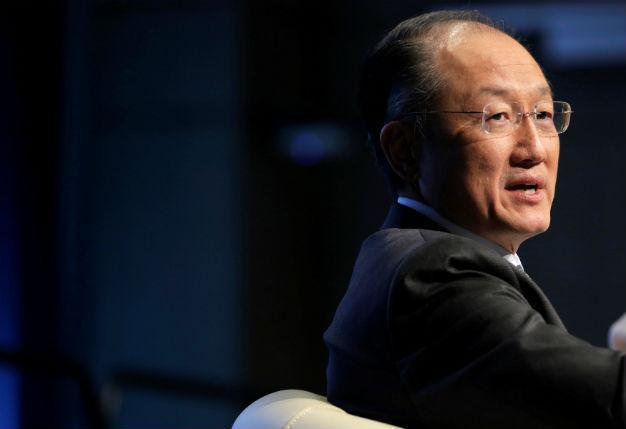IMF, World Bank focus on economic risks of Brexit, tax evasion
WASHINGTON - Agence France-Presse

REUTERS photo
The International Monetary Fund and World Bank focused April 14 on Britain’s possible EU pullout and widespread tax evasion as key threats to the global economy as they opened their Spring Meetings.Laying out a broad spectrum of risks, from refugee crises and rising protectionism to climate change, the leaders of the two powerful global development banks called for the most developed countries especially to take “immediate” action to stimulate growth to avoid backsliding into a worldwide stall.
“In the global economy, there are not many bright spots,” said World Bank President Jim Yong Kim. “The weakening global economy threatens our progress toward ending extreme poverty by 2030.”
IMF Managing Director Christine Lagarde refused to call the downturn a “crisis,” but stressed the urgency of a response all the same.
“We are on alert, not alarm,” she said.
“The current policy responses that we are seeing need to go faster and need to go deeper.”
Both noted the rise in the need to support weak economies, many battered by the crash in the prices of oil and other commodities.
“The demand for our services has never been higher outside of a crisis period,” Kim said, saying the Bank expects middle income countries will need some $25 billion in loans this year, $10 billion more than the bank had previously anticipated.
The IMF has also seen a rise in demand for its emergency government financing.
Last week Angola, its finances battered by the plunge in oil prices, requested a three-year bailout program from the Fund.
The IMF opened the week by cutting its forecast for world economic growth for the third time in six months, saying growth has been “too slow for too long.”
The Fund lowered its growth forecast for 2016 to 3.2 percent, compared to the 3.8 percent it expected a year ago.
“Lower growth means less room for error,” IMF chief economist Maurice Obstfeld said.
“The weaker is growth, the greater the chance that the preceding risks, if some materialize, pull the world economy below stalling speed.”
The IMF said the risks include public debt in advanced economies that are at the highest levels since the end of World War II and unsustainably high corporate debt in emerging economies. It estimated that in China alone, banks hold $1.3 trillion in “at risk” loans from public companies.
Brexit risks, security concerns
If not countered with more pro-growth measures, the combination of low growth, low inflation and high debt could combine to push the world economy toward the edge of recession, the IMF warned.
One key danger, Lagarde said April 14, is the possibility of Brexit, a British exit from the European Union.
“It’s been a long marriage between members of the European Union,” she said.
“It’s really my personal hope that it doesn’t break. Like all marriages, good talks can actually help and I hope that the dialogue can continue.”
Kim said an expansion of the conflicts and refugee crises in the Middle East and North Africa are a particular worry.
“We’re not just looking at the Middle East and North Africa, we’re also looking at the Sahel and the Horn of Africa.”
An expansion of the crises to those poor and heavily populated regions, he said, would foment “a threat of unprecedented proportions.”
Both Kim and Lagarde were pressing the powerful finance ministers and central bankers from around the world to take firm action to spur economic growth and create jobs, with more government spending, and growth oriented reforms.
















